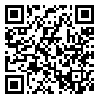Volume 23, Issue 3 (Autumn 2017)
Back to this Issue |
Back to browse issues page
Download citation:
BibTeX | RIS | EndNote | Medlars | ProCite | Reference Manager | RefWorks
Send citation to:



BibTeX | RIS | EndNote | Medlars | ProCite | Reference Manager | RefWorks
Send citation to:
Ghavami S R, Borimnejad L, Seyedfatemi N, Haghani H. The effect of parental role training on stress in the parents of hospitalized newborns in a neonatal intensive care unit
. Journal of Hayat 2017; 23 (3) :243-253
URL: http://hayat.tums.ac.ir/article-1-2002-en.html
URL: http://hayat.tums.ac.ir/article-1-2002-en.html
1- MSc. in Nursing, School of Nursing and Midwifery, Iran University of Medical Sciences, Tehran, Iran
2- Associate Professor, Dept. of Pediatric Nursing, School of Nursing and Midwifery, Iran University of Medical Sciences, Tehran, Iran; Nursing Care Research Centre, Iran University of Medical Sciences, Tehran, Iran ,l.borimnejad@gmail.com
3- Associate Professor, Dept. of Psychiatric Nursing, School of Nursing and Midwifery, Iran University of Medical Sciences, Tehran, Iran; Nursing Care Research Centre, Iran University of Medical Sciences, Tehran, Iran
4- Instructor, Dept. of Biostatistics, School of Public Health, Iran University of Medical Sciences, Tehran, Iran
2- Associate Professor, Dept. of Pediatric Nursing, School of Nursing and Midwifery, Iran University of Medical Sciences, Tehran, Iran; Nursing Care Research Centre, Iran University of Medical Sciences, Tehran, Iran ,
3- Associate Professor, Dept. of Psychiatric Nursing, School of Nursing and Midwifery, Iran University of Medical Sciences, Tehran, Iran; Nursing Care Research Centre, Iran University of Medical Sciences, Tehran, Iran
4- Instructor, Dept. of Biostatistics, School of Public Health, Iran University of Medical Sciences, Tehran, Iran
Abstract: (7189 Views)
Background & Aim: Infant hospitalization in the intensive care unit is stressful for parents so that it affects their parental role. Nurses, due to their special situation, can play an important role in reducing parental stress. This study aimed to determine the effect of parental role training by a nurse on stress in the parents of hospitalized newborns in a neonatal intensive care unit.
Methods & Materials: A quasi-experimental study (IRCT201605131788N17) was conducted on 72 parents (36 couples in the intervention group, 36 couples in the control group) of hospitalized newborns in the neonatal intensive care unit of Ali-Asghar hospital in 2016. The intervention group received the parental role training based on their needs. Their stress level was compared with the control group using the Parental Stress Scale. Data were analyzed by descriptive statistics, chi-square test, paired t-test, independent t-test and Fisher's exact test using the SPSS software v.16.
Results: Before the education, there was no significant difference in the stress level between the two groups (P>0.05). After the education program, the stress level in the intervention group fell on the tenth day compared to the control group (P<0.001).
Conclusion: Training parents based on their educational needs reduces their stress. By reducing stress and improving the role of parents, it can be assured that the newborn is provided with the quality care at the time of admission.
Methods & Materials: A quasi-experimental study (IRCT201605131788N17) was conducted on 72 parents (36 couples in the intervention group, 36 couples in the control group) of hospitalized newborns in the neonatal intensive care unit of Ali-Asghar hospital in 2016. The intervention group received the parental role training based on their needs. Their stress level was compared with the control group using the Parental Stress Scale. Data were analyzed by descriptive statistics, chi-square test, paired t-test, independent t-test and Fisher's exact test using the SPSS software v.16.
Results: Before the education, there was no significant difference in the stress level between the two groups (P>0.05). After the education program, the stress level in the intervention group fell on the tenth day compared to the control group (P<0.001).
Conclusion: Training parents based on their educational needs reduces their stress. By reducing stress and improving the role of parents, it can be assured that the newborn is provided with the quality care at the time of admission.
Send email to the article author
| Rights and permissions | |
 |
This work is licensed under a Creative Commons Attribution-NonCommercial 4.0 International License. |






